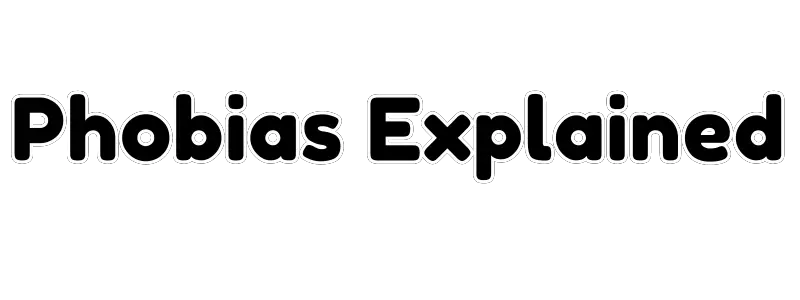An intriguing look into Chionophobia, the extreme fear of snow, exploring its symptoms, causes and potential treatments.

What Phobia Is an Extreme Fear of the Snow
While many people find a serene beauty in a landscape blanketed by fresh, white snow, you might find this same sight to induce panic and unease. This might seem unusual to some, but it's actually an acknowledged fear known as Chionophobia – an extreme fear of snow.
But what triggers such a fear in a person, and how does it affect their daily life? In the following discussion, we're going to examine the symptoms, causes, and potential treatments for this unique phobia.
Hold tight, this is going to be a fascinating exploration into the human psyche.
Key Takeaways
- Chionophobia is an extreme fear of snow triggered by traumatic events.
- Physical symptoms of chionophobia include rapid heartbeat, shortness of breath, trembling, and panic attacks.
- Chionophobia can disrupt daily life, lead to social isolation, and affect mental health.
- Treatment options for chionophobia include psychotherapy, medication, alternative therapies, relaxation techniques, and exposure therapy.
Understanding Chionophobia

To fully grasp chionophobia, or extreme fear of snow, it's important to dive into the psychological and emotional mechanisms that trigger such a unique phobia. As with any phobia, the origin is typically rooted in a past traumatic event. It could have been a severe winter storm that left you feeling helpless and terrified, or perhaps a car accident on a snowy road. These experiences can leave deep emotional scars, causing your brain to associate snow with danger.
Chionophobia prevalence isn't as high as other phobias like arachnophobia or claustrophobia, but the impact on those affected is no less significant. You might find yourself avoiding certain activities or places during the winter months, leading to social isolation and a decrease in your quality of life. It's also common to experience physical symptoms such as rapid heartbeat, shortness of breath, trembling, or even full-blown panic attacks at the mere thought of snow.
Scientific research suggests that phobias like chionophobia are essentially misfirings of the brain's natural survival instincts. In other words, your brain is overreacting to a threat that isn't there, which can make life during the winter months incredibly difficult. But don't lose hope; understanding the origins of your fear is the first step towards managing it.
Empathy is key here. It's essential to acknowledge that, while your fear may seem irrational to others, it's very real to you. Remember, it's okay to seek help and talk about your fears. You're not alone in this, and with the right support and treatment, you can learn to control your fear of snow.
Symptoms of Snow Phobia

While you mightn't think twice about a snowfall, if you're grappling with chionophobia, even the smallest flurry can trigger a host of physical and psychological symptoms. This isn't about disliking the cold or feeling slightly uncomfortable; it's an intense, irrational fear that can be debilitating.
Phobia triggers, such as a snowfall, can prompt immediate anxiety. You might find your heart racing, your palms sweating, and your breathing becoming rapid and shallow. These are classic signs of a fight or flight response, your body's way of preparing to confront or escape an imminent threat. But in the case of chionophobia, the threat is perceived, not real.
Psychological symptoms of snowfall anxiety can include an overwhelming sense of dread, a desire to escape, and a feeling of being trapped. You may also experience a loss of control or feel detached from reality. These responses, while distressing, are your brain's misguided attempts at protecting you from what it perceives as a danger.
Understanding the symptoms is a crucial step towards managing your phobia. Remember, you're not alone and it's okay to seek help. Cognitive-behavioral therapy is a common treatment, focusing on changing thought patterns and behaviors. Medication might be recommended for severe cases.
Causes Behind the Fear

Digging into the root causes of your intense fear of snow, it's important to remember that phobias aren't usually tied to one specific event or reason; instead, they may stem from a complex interplay of genetic, environmental, and psychological factors.
Genetic influence might've a role in the development of your phobia. You could have inherited certain genes from your parents that make you more susceptible to developing fears and anxieties.
Environmental triggers are also key players in the creation of phobias. You might've had an unpleasant or traumatic experience with snow in your past, such as getting lost in a snowstorm or being buried under a snowfall. These experiences can imprint a fear within your subconscious mind and lead to an irrational fear of snow. It's also possible that your fear arises from a general fear of cold temperatures or winter, which you associate with snow.
Psychological factors can't be discounted either. A predisposition to anxiety or a tendency to avoid discomfort can amplify your fear. The way you think about and interpret your experiences can also contribute to your phobia. If you've been conditioned to see snow as dangerous or threatening, this perception can feed your fear.
Understanding the causes behind your fear is the first step in overcoming it. Once you've identified potential genetic influences, environmental triggers, and psychological factors, you can begin working on strategies to confront and overcome your fear. Remember, it's okay to seek help. Therapists and psychologists are trained to help you understand and overcome your phobias.
Impact on Daily Life

Living with an extreme fear of snow can significantly disrupt your daily life, affecting everything from your routine activities to your mental well-being. Winter activities avoidance, a common consequence of this phobia, can lead to social isolation. You might find yourself missing out on shared experiences like ice-skating, snowball fights, or simply a walk in the snowy park. This avoidance can also extend to necessary daily activities. For instance, you might dread the thought of commuting to work or school in snowy conditions, leading to frequent absences or even job loss.
Moreover, this phobia's impact isn't limited to physical activities. It can also profoundly affect your emotional and mental health. This is where Seasonal Affective Disorder (SAD) comes into play. SAD is a type of depression that's related to changes in seasons, primarily starting in the fall and continuing into the winter months. If you're already struggling with an extreme fear of snow, the shorter days and colder weather can exacerbate your anxiety, possibly leading to SAD.
Scientifically speaking, your reactions to snow aren't baseless. They're rooted in your brain's fight-or-flight response, triggered by perceived threats. In your case, snow is the threat. And while this is a valid response, it's important to understand that it's possible to manage this fear.
Treatment Options Explored

You don't have to be held captive by your fear of snow; various treatment options can help you manage this phobia and regain control over your life. Understanding the phobia origins can prove to be a useful starting point. Your fear may stem from a traumatic experience, or perhaps it's a learned behavior from childhood. Grasping the root cause can guide your treatment approach.
Psychotherapy, including cognitive-behavioral therapy (CBT), is a common treatment for phobias. CBT focuses on identifying and changing negative thought patterns and behaviors. It equips you with practical strategies to manage your fear, thereby reducing its impact on your life.
Medication, though not a cure, can help minimize the symptoms of your phobia. Anti-anxiety drugs or antidepressants can make it easier for you to cope with the fear and anxiety associated with snow. It's crucial to remember that medication should be used in conjunction with therapy, not as a standalone treatment.
In recent years, alternative therapies have also gained traction. Techniques like hypnotherapy and neuro-linguistic programming can help you reframe your perception of snow, transforming it from a source of fear to just another aspect of nature. Additionally, relaxation techniques like meditation and deep-breathing exercises can help you manage your anxiety.
Lastly, exposure therapy, in which you're gradually and safely exposed to snow, can help you become more comfortable with it over time.
Coping Mechanisms and Support

When facing your fear of snow, it's essential to arm yourself with effective coping mechanisms and a strong support network. It's scientifically proven that having a support system can significantly help manage and overcome phobias. Hence, the importance of support groups can't be overstated. These groups provide an environment where you can share experiences, learn from others, and receive emotional encouragement, helping you feel less alone in your struggle.
Support groups aren't just about talking; they offer practical advice on coping strategies. For instance, you might learn about winter activities alternatives that can help reduce anxiety related to snow. This could include indoor hobbies or exercises, or even winter sports that don't necessarily involve direct interaction with snow, like indoor ice-skating or swimming in heated pools. Such alternatives provide exposure to a winter environment without triggering extreme fear.
An analytical approach to your phobia can also be beneficial. Understanding the root cause of your fear and recognizing your body's physiological responses to snow can help you manage your reactions better. Techniques such as deep breathing exercises, meditation, and exposure therapy can also be effective coping mechanisms.
Lastly, don't underestimate the power of professional help. Therapists and psychologists specialized in phobias can provide personalized coping strategies. They can also facilitate your participation in suitable support groups. Remember, it's okay to seek help. Your fear doesn't define you, and with the right mechanisms and support, you can successfully manage your phobia.
Conclusion
Managing chionophobia can be challenging, but it's not impossible. You're not alone in this journey, and there's a variety of treatment options out there for you.
With the right strategies, professional guidance, and personal resilience, you can gradually overcome your fear of snow. Remember, it's okay to seek help and take things at your own pace.
Embrace the journey and remember that every step you take towards conquering your fear is a victory in itself.



Sign up